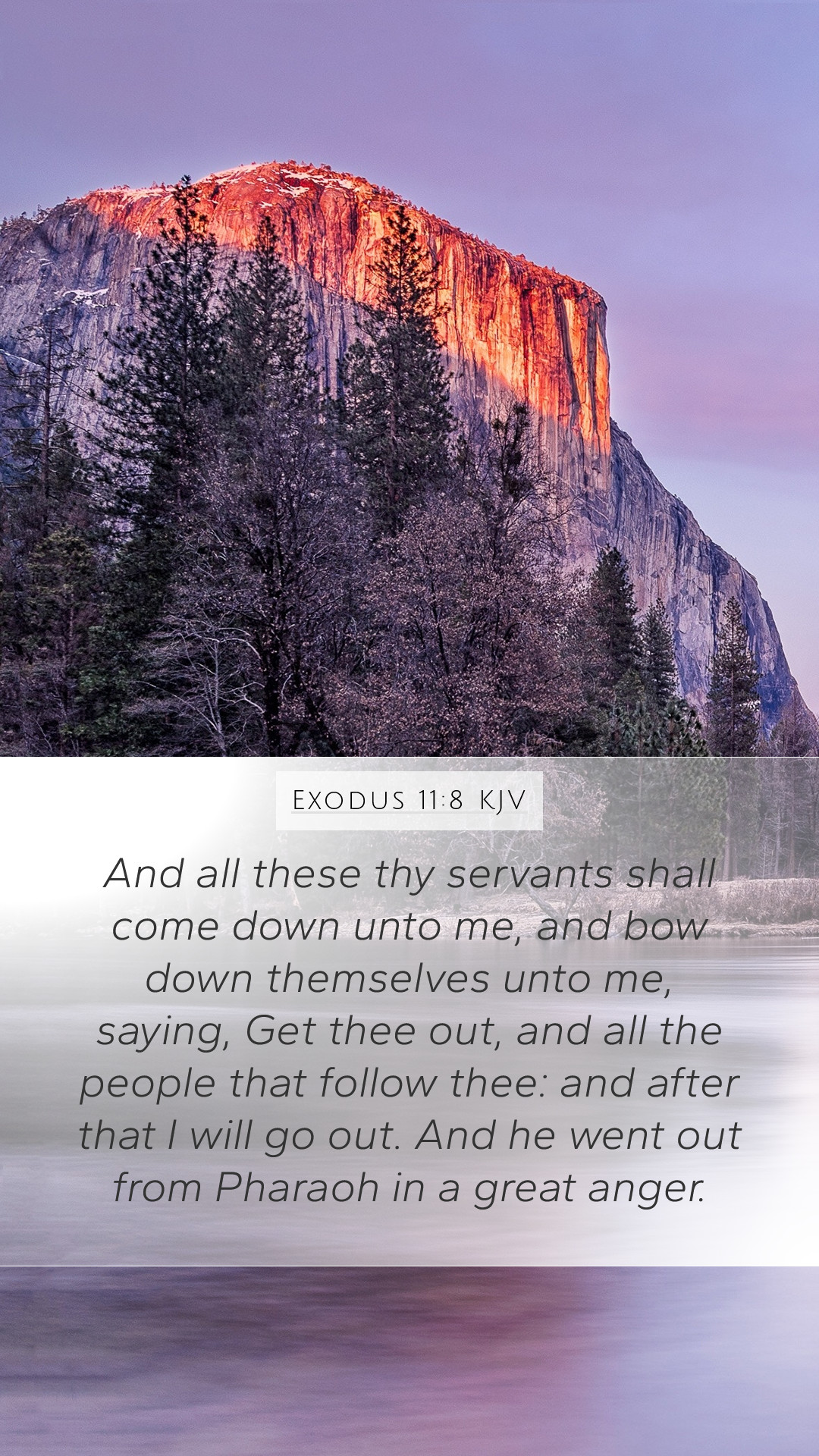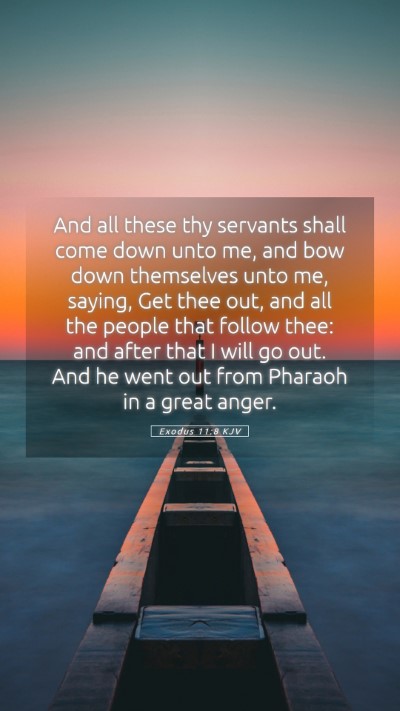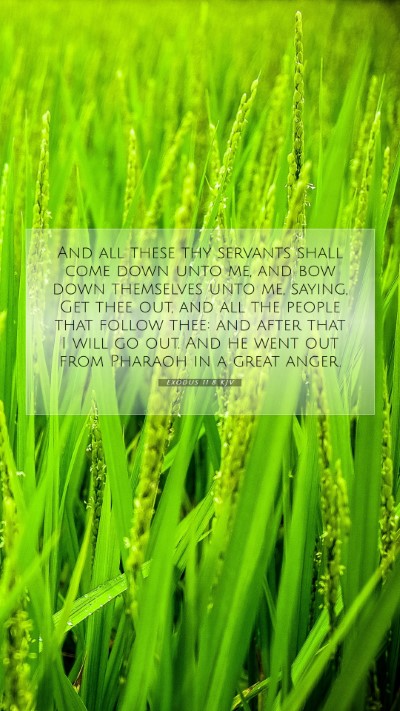Bible Verse Meaning: Exodus 11:8
Exodus 11:8 states:
"And all these thy servants shall come down unto me, and bow down themselves unto me, saying, Get thee out, and all the people that follow thee: and after that I will go out." (KJV)
This verse forms part of God's final warning to Pharaoh regarding the impending last plague, which would lead to the Exodus of the Israelites from Egypt. Understanding this verse requires an examination of its context, theological implications, and the character of God as portrayed in Scripture.
Contextual Overview
To appreciate the full significance of Exodus 11:8, it is essential to consider the historical and narrative context. In the preceding chapters, God had sent ten plagues to Egypt, each meant to demonstrate His sovereignty and power over the false gods of Egypt. The climactic nature of the final plague sets the stage for a significant transition in Israelite history.
Matthew Henry's Commentary
Matthew Henry emphasizes the seriousness of God's judgment, noting that this proclamation from Pharaoh's servants reflects the deep despair they felt due to the plagues. He points out that it signifies the broken will of Pharaoh and his court before the divine plan. Henry also notes the irony that those who once oppressed the Israelites now plead for their release.
Albert Barnes' Notes
Albert Barnes elaborates on the prophetic nature of this verse, explaining how it foreshadows the inevitable submission of Pharaoh and his officials to the will of God. His commentary highlights the theme of divine authority, as the Egyptians are compelled, through fear of judgment, to acknowledge the supremacy of God over their false deities.
Adam Clarke's Commentary
Adam Clarke reiterates the significance of this moment as a turning point for the Israelites. Clarke draws attention to the emotional turmoil of the Egyptians and the gravity of their situation. He also examines the implications for the Israelites as they prepare to leave their bondage, indicating that God's intervention will bring about their liberation.
Theological Implications
Exodus 11:8 holds profound theological significance by illustrating God's power and commitment to deliver His people. It shows that God does not condone oppression and that His plans for salvation will prevail despite human obstinacy. The verse also holds a lesson on humility and the futility of resisting divine will, as seen in the fate of Pharaoh.
Application of the Passage
For modern readers, this verse serves as a reminder of God's sovereignty and the importance of obedience to His call. It encourages believers to reflect on their own resistance to God's will and to recognize that His plans far outweigh human understanding and power.
Cross References
- Exodus 3:19-20 - God predicts Pharaoh's unwillingness to let the Israelites go.
- Exodus 12:30-32 - The fulfillment of God's prophecy when Pharaoh finally gives in.
- Psalm 105:36-38 - A reflection on God's judgment of the Egyptians and the liberation of Israel.
- Exodus 10:8-11 - The stubbornness of Pharaoh in the face of divine miracles.
- Romans 9:17 - Paul’s reference to Pharaoh as an example of God’s sovereignty.
Conclusion
In conclusion, Exodus 11:8 carries weighty themes of judgment, authority, and deliverance. By studying this verse, believers gain valuable insights into God's character and His interactions with humanity, particularly regarding freedom from oppression, demonstrating that God ultimately secures the well-being of His people.
This analysis aligns with the principles of Bible verse commentary, providing a framework for understanding Scripture and deepening Bible study insights. For those interested in online Bible study or Bible study groups, this verse serves as an essential topic for discussion, illustrating key themes of faith and divine intervention.


